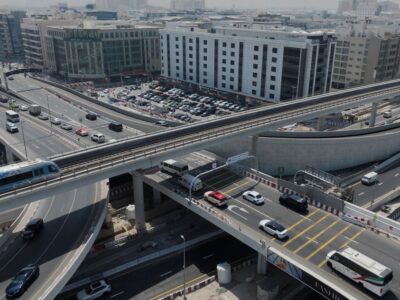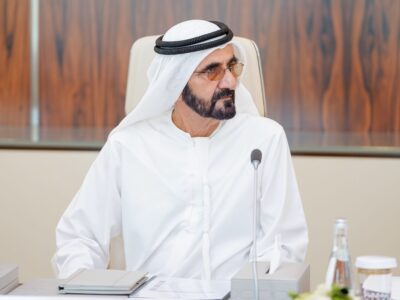Strong growth is expected to continue at Khalifa Bin Salman Port in Bahrain, despite ongoing concerns over the global coronavirus pandemic.
Maureen Bannerman, recently appointed managing director of APM Terminals (APMT) Bahrain, who operate the gateway port, told Arabian Business that it’s been “absolutely critical” to keep Khalifa Bin Salman Port operating throughout the health crisis.
The port, which brings in 90 percent of goods to the kingdom and contributes around 16 percent to the total GDP of the Gulf country, witnessed revenue growth of $25.7 million for the last financial year to March.
Bannerman said: “We’re increasing year-on-year in terms of volumes through the port and even this year, Covid-permitting, we’re still seeing year-on-year increases, both in laden volumes and also in general cargo volumes as well.”
Investment in infrastructure at the port, through to March, was in the region of $2.7m and Bannerman admitted she didn’t “see that reducing at all”.
“Even given Covid, we’ve still got a very strong performance for the port overall and we hope to continue that throughout the remainder of this year,” she said.
However, she cautioned that as long as the Covid virus remains, then future growth would be far from plain sailing for APMT.
“We’re not out of the woods yet,” she said. “Bahrain is still on yellow status, we’ve only just come out of a secondary or tertiary lockdown, so we still need to be very, very much aware we still need to maintain safe working conditions, we still need to constantly reinforce that around the port, because we cannot afford to have our teams of people away from the port, because there is not the infrastructure there for us to replace our key absolute critical frontline workers that maintain those logistics systems for us.”
 Maureen Bannerman, managing director at APM Terminals Bahrain.
Maureen Bannerman, managing director at APM Terminals Bahrain.
Meanwhile, APMT, operator of the Khalifa Bin Salman Port (KBSP), welcomed its first Bahraini national onto the C-suite over the last quarter and Bannerman is confident it won’t be the last.
Currently around 64 percent of the company is made up of Bahraini nationals, while 66 percent of Bahrainis are in managerial roles.
“One of our key reasons for being is to ensure that we develop Bahrainis within the economy and it’s absolutely a key focus for us in terms of a workforce,” she said.







